Ethereum's 40-month slump vs. Bitcoin won't end in a dollar 'freefall' scenario
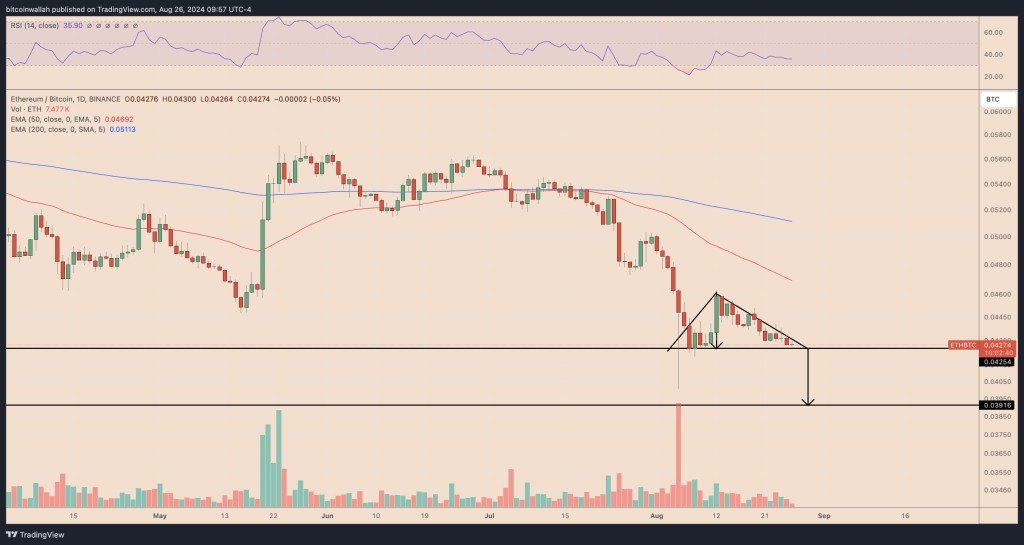
The positive correlation between the ETH/BTC pair and the US Dollar Index has strengthened ahead of the Federal Reserve’s September rate decision.

Ether (ETH), the native token of the Ethereum network, has fallen by roughly 25% against Bitcoin (BTC) since the start of 2024 and the lowest levels in 40 months. The outlook for Ether remains bearish in the coming weeks, particularly as the likelihood of Federal Reserve interest rate cuts in September increases.
ETH/BTC and USD correlation grows
A key factor in Ether’s bearish outlook is the growing positive correlation between the ETH/BTC pair and the US dollar Index (DXY), which has dropped 5.35% from its 2024 peak.
As of Aug. 26, the 30-day average correlation coefficient between ETH/BTC and DXY was 0.78, up from 0.10 at the start of the year.
This trend suggests that traders have increasingly shifted away from Ether, favoring Bitcoin by reallocating their holdings or prioritizing it for new investments, particularly as the dollar weakens against a basket of major foreign currencies.
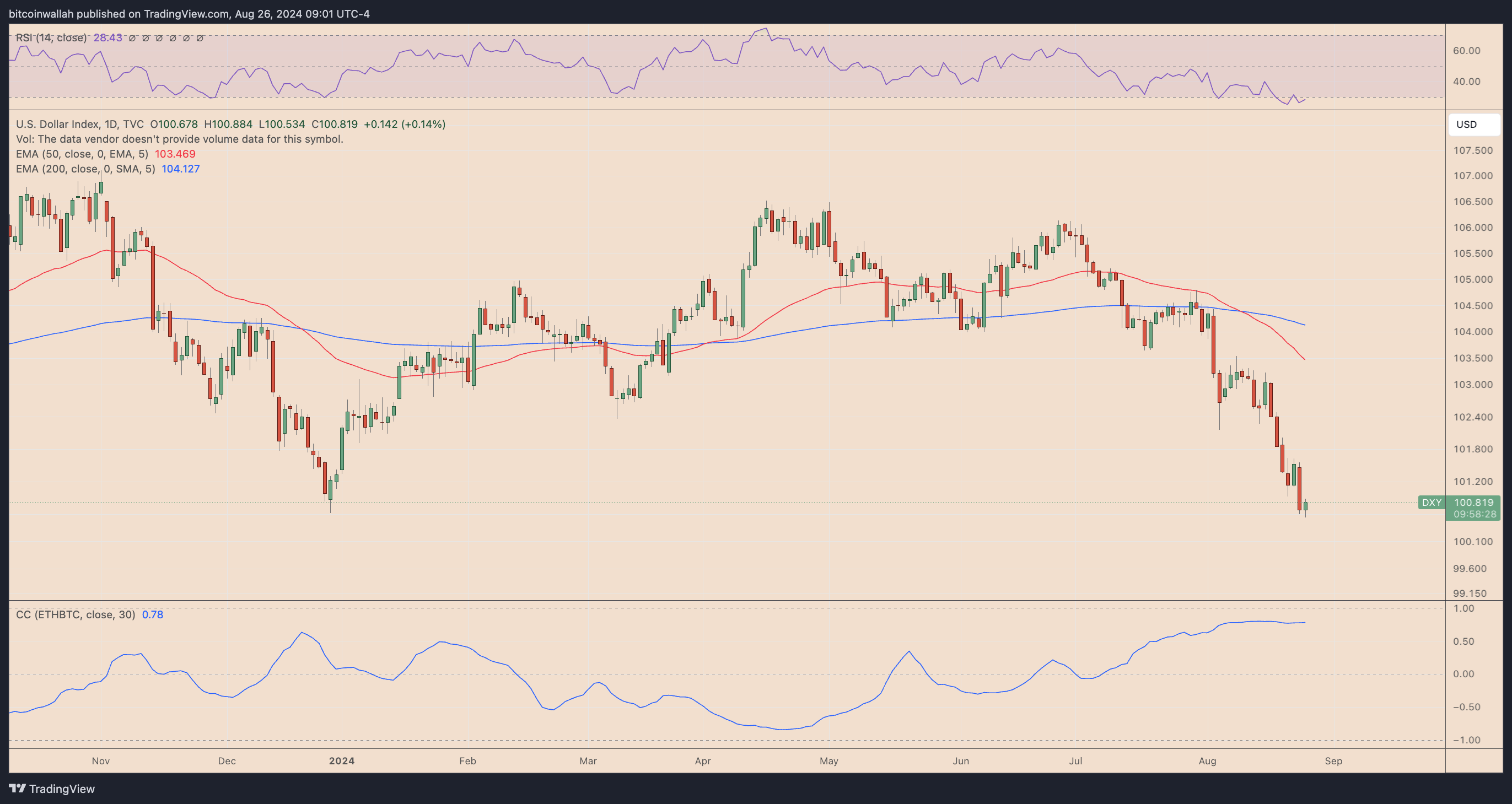
Multiple factors have drive the Ether-to-Bitcoin capital rotation. One is the launch of Bitcoin-focused spot exchange-traded funds (ETF) in the US in January 2024. Since then, these ETFs have witnessed inflows worth $17.86 billion, according to Farisde Investors data.
Related: Why is Ethereum losing market share to Bitcoin?
In contrast, Ether’s ETF launches in late July received a tepid response, resulting in $465 million in withdrawals. The Grayscale Ethereum Trust (ETHE) has single-handedly exacerbated the situation, reporting a staggering $2.53 billion in outflows, dampening traders’ enthusiasm for Ether when compared to Bitcoin.
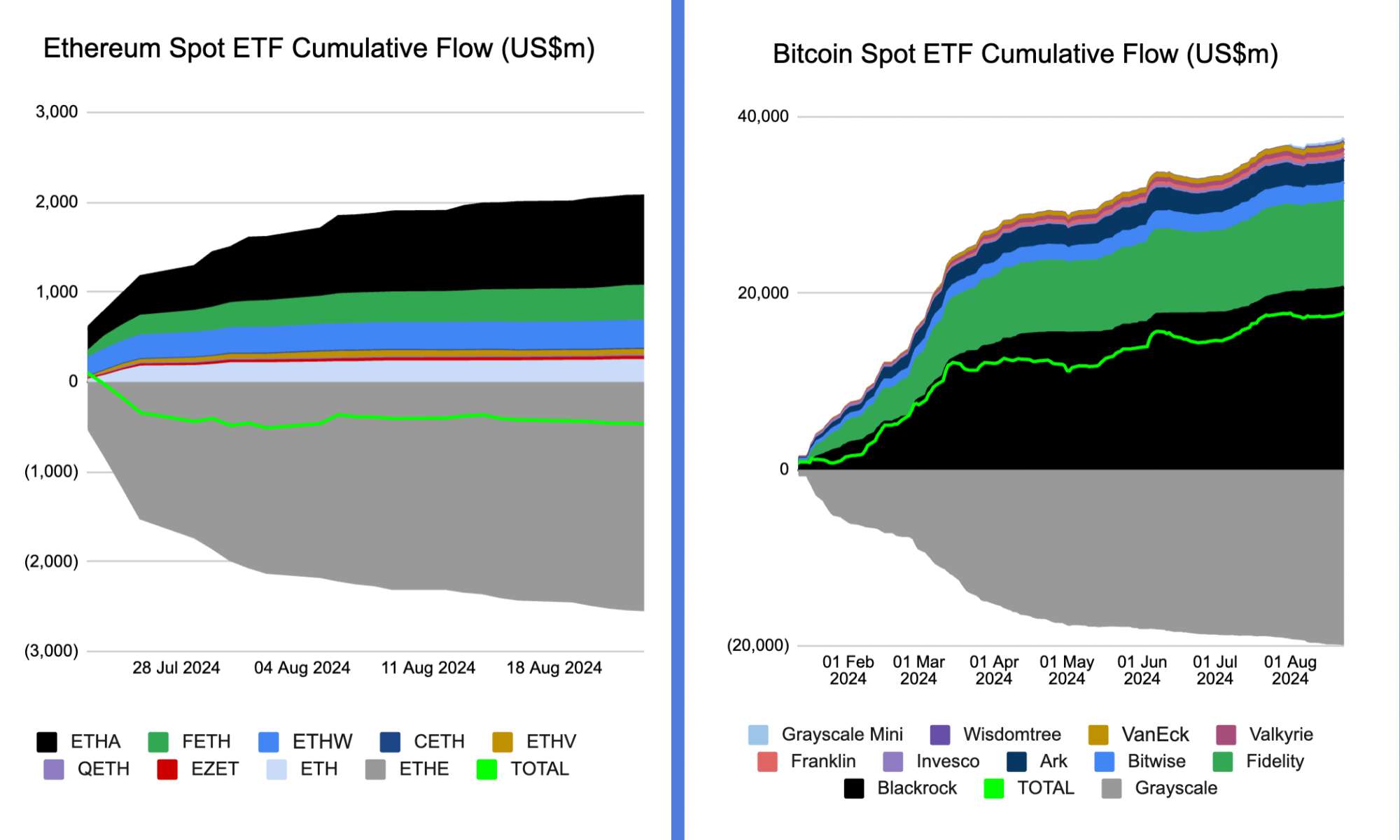
If recent history is any guide, traders may increasingly allocate their capital to Bitcoin over Ether as the dollar weakens following the anticipated September rate cut.
Dollar breaks below key long-term support
The US Dollar Index broke below a multi-month horizontal support rate on Aug. 23 following Fed Chair Jerome Powell’s extremely dovish outlook at the Jackson Hole symposium.
Elja Boom, an independent market analyst, noted the decline as a cue for a further “freefall” for the dollar while citing what appears to be a Bearish Gartley pattern. As shown below, this is a harmonic pattern used in technical analysis to identify potential reversal zones in the market.
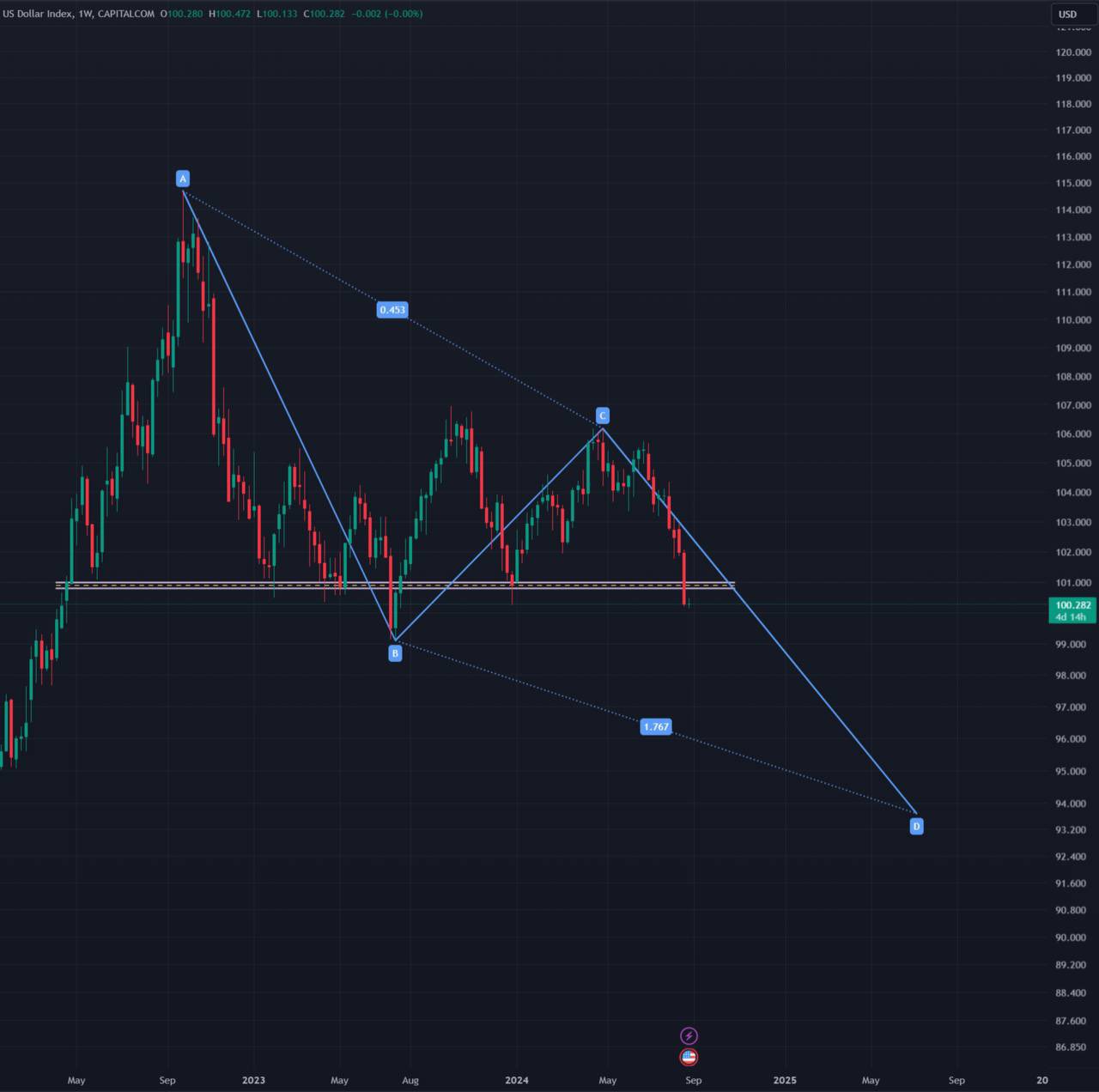
Boom suggests that the dollar will likely continue its downtrend, potentially reaching the target around the 94-96 level, as indicated by the pattern.
“This is very bullish for BTC and crypto,” he added.
ETH/BTC sees 10% decline in September
A stronger positive correlation with DXY could send ETH/BTC lower in September, a scenario furthered by the formation of a V-top on its shorter timeframe charts.
The V-top pattern is characterized by a steep rise and an equally sharp decline, forming a V-shape on the chart. In this case, ETH/BTC experienced a rapid upward movement in late July, which was immediately followed by a sharp decline starting in early August.
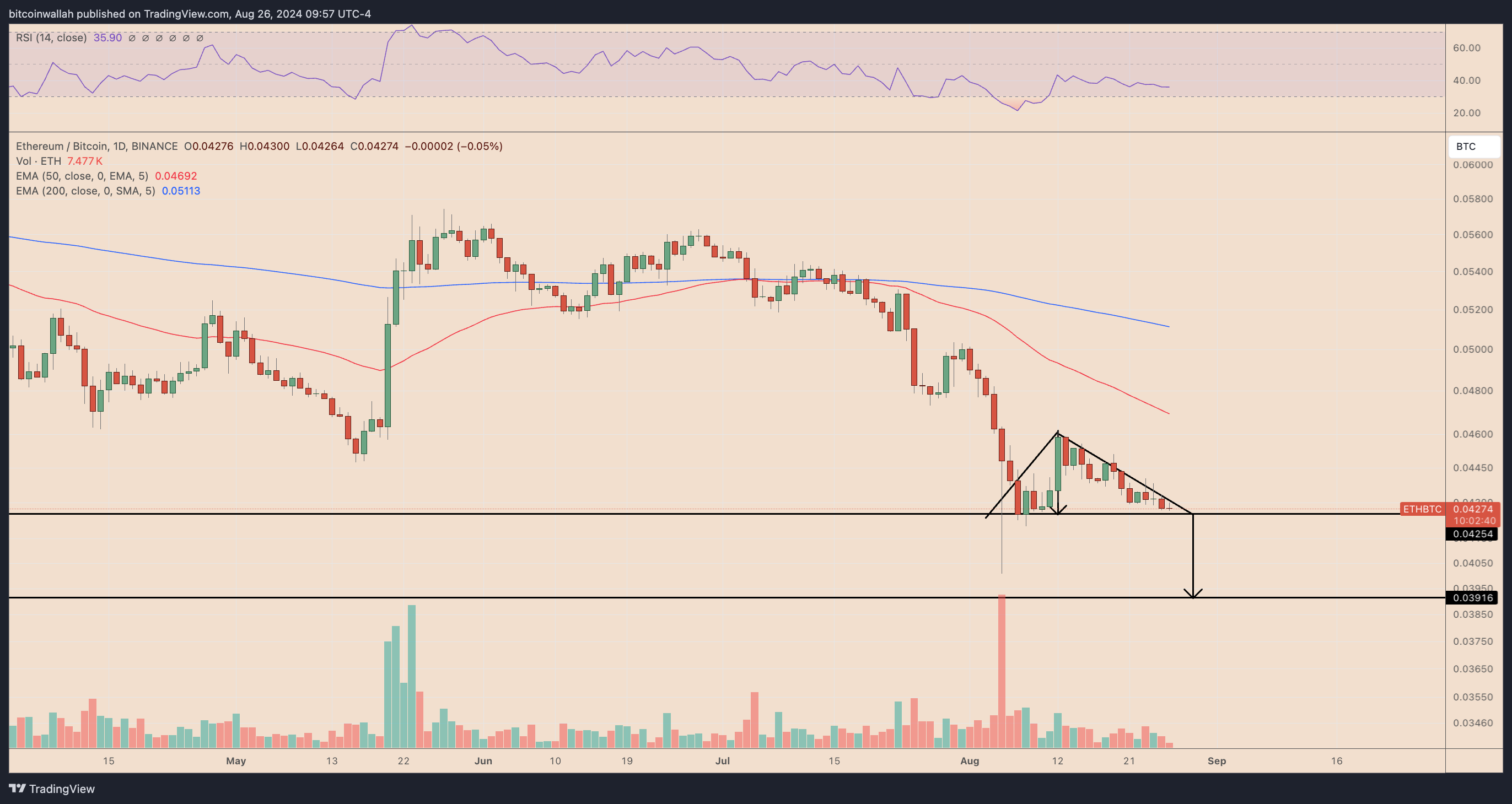
The pattern is confirmed when the price breaks below the support level at the bottom of the V, which appears to be around the 0.0427 BTC level in this chart.
If ETH/BTC breaks decisively below the support level, it could decline to 0.0396 BTC by September, down about 10% from the current price levels and its lowest level since early April 2021. The target is projected by measuring the height of the V-top (from the peak to the base) and extending that downward from the breakdown point.
Conversely, a rebound from the 0.0427 support level could invalidate the bearish setup altogether, instead enabling a rebound rally toward ETH/BTC’s 50-4H EMA (the red wave) at around 0.0469 BTC by September.
This article does not contain investment advice or recommendations. Every investment and trading move involves risk, and readers should conduct their own research when making a decision.






Responses